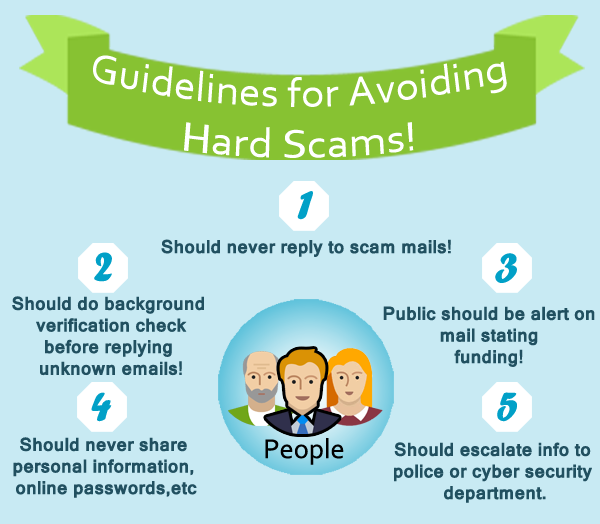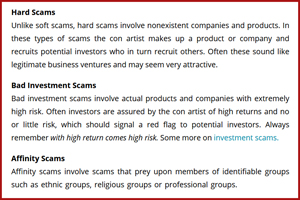Hard Scams
Scamming activity is a hot topic that is making rounds on the internet. Though hundreds of people have already brought these types of scams to the notice of the crime department and cyber cell, more and more people continue to receive such emails in their spam folders. Perpetrators, who often hide their real identities, make quick money by cheating innocent targets. Scammers' behavior and attitude may seem formal and honest at first, but once the target responds to their emails, they begin to reveal their true intentions. Scams related to real estate—especially
hard money lending fraud—are spreading globally, and many people have received such emails from scammers. Scammers are highly versatile and deceive innocent people through their calculated strategies. The scammers’ seemingly kind and innocent facade quickly transforms into a threatening one once the target engages with these criminal groups.
Scams related to hard money lending are becoming increasingly common these days, as more people are purchasing land and buildings in prominent localities. Some of the common scams in hard money lending include upfront fees, total financing, and the bait-and-switch scam. In these types of scams, the scammer poses as a reputable money lender and sends an email stating something like:
“We are very happy to inform you that our company has decided to offer 100% financing for your real estate. To proceed further, we request you to deposit a small amount for verification and as a fee for future services.” A closer look will reveal that these scammers operate in a deceptive and manipulative manner, with the sole intention of swindling money from their targets. Intelligent buyers usually recognize such tactics and avoid falling for these formal-sounding promises. However, innocent purchasers are often lured by the glamorous words and end up depositing the requested amount. Scams involving hard drives are also becoming widespread. Recently, a Chinese hard disk fraud case made headlines for all the wrong reasons.
The following guidelines will be of great help to the public:
-
People should never reply to scam emails. If they do, scammers will try to build rapport and continue the conversation to trap them.
-
Anyone receiving emails from unknown senders should conduct background checks and other serious verifications before responding.
-
When someone receives an email offering 100% funding for residential projects, they should be cautious. Most legitimate lenders typically offer only 65% to 75% financing for purchasing or remodeling property.
-
Individuals should never share personal information, bank details, online passwords, or PINs with unknown third parties.
-
If such incidents occur, they should be escalated to the police or cyber security department immediately.
Scammers often request the buyer to pay the full amount upfront before sending the tickets. Frequently, they ask the buyer to transfer the money via Western Union or similar services. These scams continue to thrive, especially when authorities fail to take prompt and effective action.
The term "hard scams" is not a widely recognized classification in scam taxonomy. Scams are generally categorized by method—such as phishing scams, investment scams, or lottery scams—rather than by their level of difficulty to detect or prevent.
If "hard scams" refers to those that are particularly difficult to identify or combat, it highlights the need for increased vigilance and awareness of evolving scam tactics. Scammers often use sophisticated techniques, making it critical for individuals to be cautious with unsolicited communications, verify the legitimacy of offers, and avoid sharing personal or financial information without proper verification.






